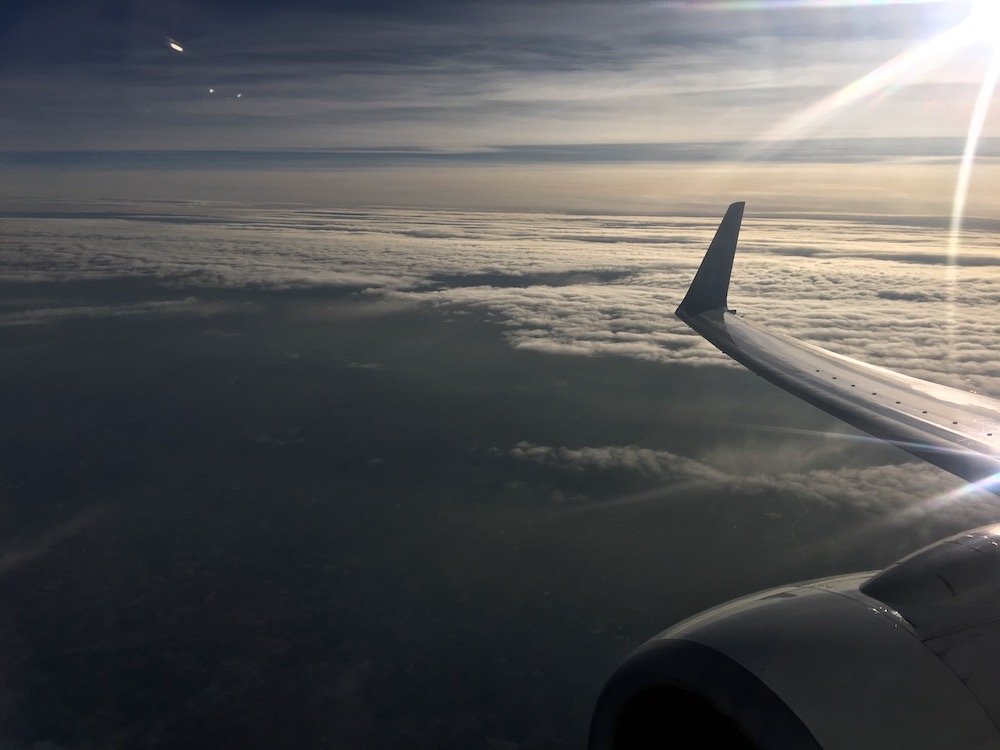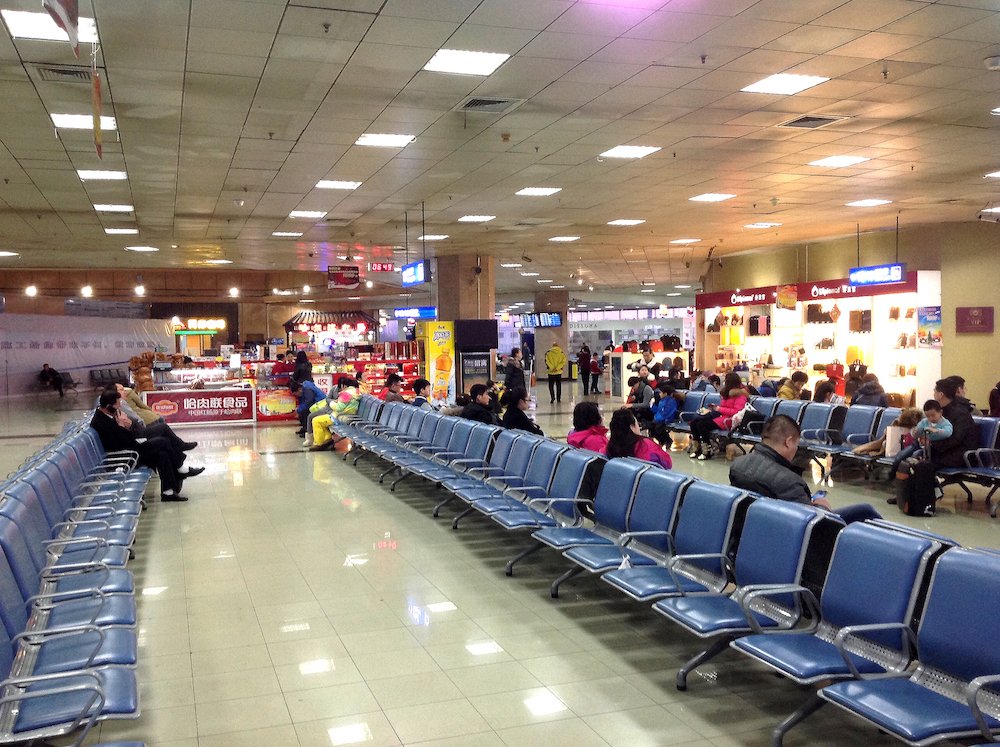7 Things You Should Know About Flying in China
Adventure. Culture. Street food. It’s all out there waiting for you to discover it. Unfortunately, there are a lot of lines, a lot of waiting, and some potentially invasive pat-downs between you and your destination. Most of us are aware of how stressful moving through an airport can be, particularly if we end up with a lot less time than expected between flights. I’ve previously written about my own airport routine, which has significantly reduced my air travel anxiety.
I actually love the flying part. All of the anxiety inhabits the spaces between the flights. Especially on long international flights that may involve 3 or more separate flights, there’s a lot that can go wrong. If you have a good head on your shoulders, it usually doesn’t.
But then, there’s China. China is a different animal completely. This is what you should know before you even buy a ticket.
1. Delays are normal and should be anticipated.
I’m looking at this from the perspective of someone who will need to travel within China. For example, you fly from Detroit to Beijing, then Beijing to Harbin. Before booking your ticket, you should reflect on the fact that the China Administration of Civil Aviation (CAAC) reported that 76.4% of flights were on time in 2016. This is up 8.4% from 2015, but that’s still a 25% chance you could miss your connecting flight if you begin your journey from within China. Make sure you have plenty of time between your connections. For China, anything less than 3 hours between flights puts your itinerary at risk.
“If you’re entering China, plan for an extremely long wait to clear customs.”
2. Keep additional time drainers in mind before booking.
In addition to delays (often without explanation), there is plenty of other time sinks you may stumble across in a Chinese airport. The check-in process takes significantly longer than in the States, and being a foreigner invites extra scrutiny that I’ve never encountered in any other international airport. Security also takes much longer. From Harbin to Beijing to Detroit, I had to go through security on my initial flight, which always includes three different people looking at your documents before you even go through inspection. In Beijing, you cannot simply transfer to your next flight. You must exit and go back through security all over again, this time with an extra exit process for international flights. If you’re entering China, plan for an extremely long wait to clear customs.
That’s just all the stuff inside the airport. Especially when landing in Beijing, prepare for what could be an extremely long wait on the tarmac before you can deplane. Many Chinese airports use buses for deplaning instead of sky bridges, so that’s another 10-15 minutes. Like I said, 3 hours should be the absolute minimum you give yourself between flights in China.
3. There aren’t many amenities.
The first time I went through Beijing’s airport, I was surprised. Yes, it is massive, and yes, it is an impressive structure that sees a massive amount of traffic every day. For all of its impressive feats of transport, there’s not much to do there. There are not many recognizable shops, save a few “domestic” options that I have not seen anywhere else in China. Many of them have unrecognizable English names, possibly generated by the marketing team punching a keyboard over and over again. Usually, you can find a McDonald’s, a Starbucks, and some kind of local dumpling option, which is not awful I guess. However, the variety of eateries and shops in Beijing Capital Airport is not much greater than at PTI in little Greensboro.
4. China has a completely different rulebook for personal space and public courtesy.
This is not a dig at China or its people - this is simply an objective observation that you will get from any Westerner who has spent several years in the country. There is no real structure of unspoken rules governing behavior in public like you might be used to. People often try to cut in line. People will often bump into you because they only care about where they need to go, the rest of the world be damned. Children are given free rein to run around, shout, or play games at full volume. Anyone over the age of 40 will shout into their phone as if whoever they’re talking to is standing out on the runway. This is all normal. Just try to get used to it.
“The food is passable and always improving, and the legroom is not too bad on domestic flights.”
5. Bring your own toilet paper.
Anyone who’s spent time in China knows that this is one of the first facts of life you become acquainted with in the country, usually when it’s least convenient. Yes, even in China’s international airport toilets, you may find yourself shit out of luck when it comes to toilet paper. Like most things in the country, it’s inconsistent. Sometimes you might get lucky. All I know is that I was happy to have my own when flying back from Beijing this Spring Festival.
6. You will need a VPN to access anything worth accessing on the airport WiFi.
Most of you are probably already aware of the widespread censorship that goes on in China. The Great Firewall is as rigid as ever and is only going to get more restrictive as time goes on. You will feel yourself smacking into it at full force if you expect to open Gmail upon arrival to find hotel reservations or other important travel/work documents. Gmail is blocked. All Google services are blocked. If you want to operate online with any level of normalcy that you are accustomed to, install a VPN on your phone before you come to China.
7. Flights with most major Chinese airlines are quite pleasant.
Most of these factoids would be considered negative by anyone who’s used to flying in the Western world. After nearly 5 years of flying in China, it has become something I dread compared to the excitement I feel when departing an airport in the States. However, I must say the flights themselves are not all that bad. The flight staff on China Eastern and China Southern are polite, helpful, and do make some effort to accommodate foreign passengers albeit often in broken English. The food is passable and always improving, and the legroom is not too bad on domestic flights. Similar to China’s high-speed trains, the biggest headache is everything leading up to taking your seat.
A final word of advice: always book international flights through a third party like Expedia rather than a Chinese airline. If anything should go wrong on either end of the trip, they will be much more likely to help you out. As long as your trip is protected and you follow the 3-hour rule, you’ll survive Chinese air travel well enough. If all fails and you find yourself stranded indefinitely in a Chinese airport, just be glad you remembered Tip #5. ◉
Written by Seth Barham






